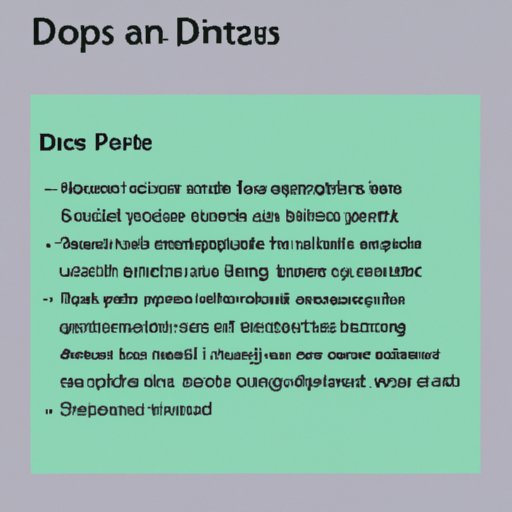
I. Introduction
When it comes to job hunting, writing a letter of interest can be one of the most effective tools in your arsenal. A letter of interest is essentially a cover letter that you send to a company even if they haven’t advertised a specific job opening. In this article, we’ll explore how to write a winning letter of interest that will grab a recruiter’s attention and make you stand out from the crowd.
II. Step-by-Step Guide
A. Introduction:
The opening of your letter of interest is crucial as it sets the tone for the rest of your letter. Start by introducing yourself and explaining why you’re writing the letter. Be sure to state the purpose of your letter clearly and make a connection with the company. For instance, you could mention that you admire the company’s culture or recent achievements.
B. Body:
The body of your letter is where you get to showcase your skills, qualifications, and experience. Start by highlighting your most significant achievements and explaining how they make you an ideal candidate for the company. Be sure to tailor your letter to the company’s needs and demonstrate how you can add value to their team. Additionally, highlight any specific skills or experiences that align with the job you’re interested in.
C. Conclusion:
The closing of your letter should be just as effective as the opening. Restate your interest in the company and explain why you’re a good fit. Additionally, provide a call-to-action that prompts the recruiter to take action, such as inviting you for an interview or requesting more information. Finally, thank the recruiter for considering your letter and express your enthusiasm about the possibility of working with them.
III. Do’s and Don’ts
A. Do’s:
- Research the company before writing your letter
- Address your letter to the appropriate person
- Highlight your most relevant achievements and experiences
- Tailor your letter to the company’s needs
- Express your enthusiasm for the job and the company
B. Don’ts:
- Send a generic letter without doing your research
- Address the letter “to whom it may concern”
- Focus on your needs instead of the company’s
- Use generic or vague language
- Be overly pushy or aggressive
IV. Expert Advice
A. Interviews with writing experts in the field:
Writing experts suggest that you don’t just sell yourself in the letter but also present an interest in the company’s mission and values. This will demonstrate your transparency and knowledge about the company.
B. Tips and insights on how to write a compelling letter of interest:
According to experts, using bullet points can make a letter of interest easy to read and navigate. Also, be sure to keep the letter concise and to the point. Avoid repetition and unnecessary information that doesn’t add value to your letter.
V. Templates
A. Examples of templates that can be used as a guide for writing a letter of interest:
There are several templates available online that can guide you in writing a letter of interest. These templates can help you structure your letter, so it’s easy to read and customize for each job application.
B. Explanation of when and how to use these templates effectively:
Templates are most effective when you use them as a guide to help you tailor your letter effectively. Use the template as a starting point and customize it according to the specific job application. Be sure to highlight your skills and qualifications that align with the job requirements.
VI. Case Studies
A. Examples of people who have written successful letters of interest in the past:
Ms. X had been following Y Corp. for years before deciding to write the company a letter of interest. When an opportunity finally came up, Ms. X’s letter of interest helped her stand out during the application process. The letter demonstrated her knowledge of the company, her passion for the industry, and a clear indication of how she can add value.
B. Analysis of what made these letters stand out:
Successful letters of interest stand out because they are tailor-made to the specific company, demonstrate a passion for the industry while showcasing relevant qualifications and experience, and provide a clear call to action at the end.
C. Lessons readers can take away and apply to their letter-writing process:
Lessons learned include: knowing the company and job requirements, finding ways to showcase relevant experience and skills, and tailoring each letter to the specific job application.
VII. Conclusion
A. Recap of main points:
In this article, we have explored how to write a compelling letter of interest. We have learned that the opening and closing of the letter are crucial, and the body should showcase relevant qualifications aligned with the company’s needs. Additionally, we have reviewed some dos and don’ts to keep in mind, expert advice and tips, and how templates and case studies can help you throughout the application process.
B. Empowering readers to write a successful letter of interest:
We hope this article has helped you understand how to write a successful letter of interest. Remember to take your time researching the company and tailoring your letter to their needs. With the right approach, your letter of interest can help you land your dream job.





